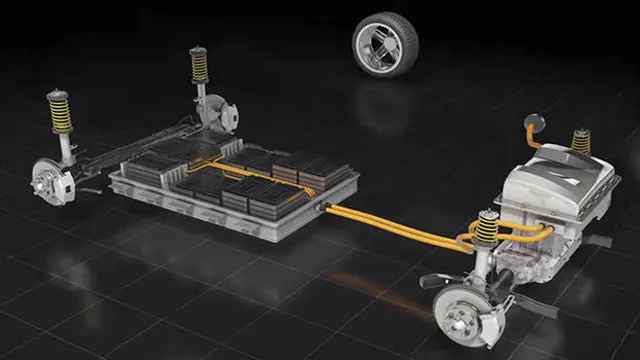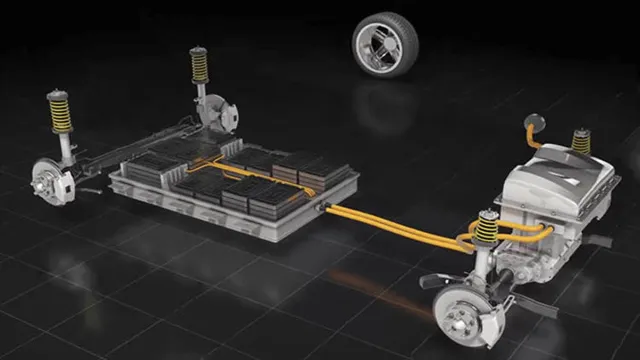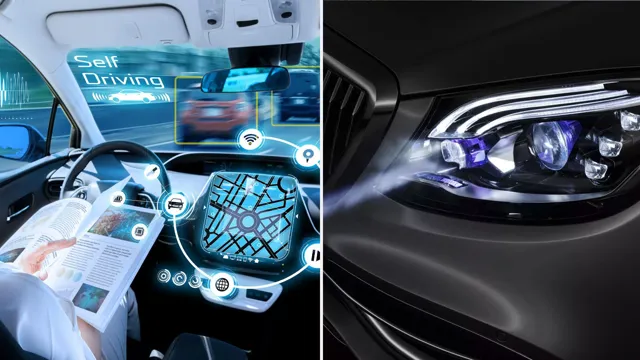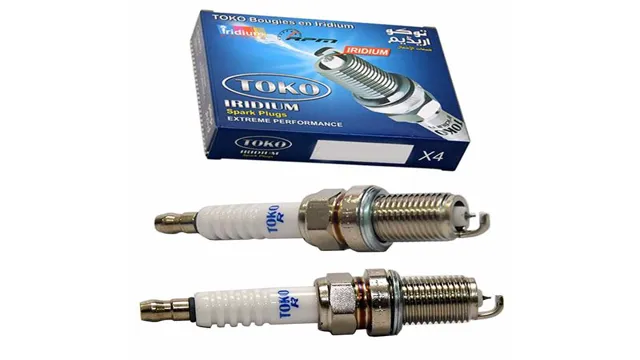Revolutionizing the Road: The Latest Advances in Electric Car Battery Technology
As the world continues to move towards sustainable energy, electric cars have become a popular choice for both drivers and environmentalists. However, before you hop into the driver’s seat of an electric car, it’s important to understand the technology behind its battery. Electric car battery tech has come a long way since the first electric vehicles hit the market, and advancements continue to be made every day.
But what exactly makes an electric car battery different from a traditional car battery? And how has new tech improved their efficiency and performance? Let’s take a closer look at electric car battery tech and how it’s driving us towards a more sustainable future.
Overview of Battery Technology
When it comes to electric cars, the current electric car battery technology is crucial for their success. Lithium-ion batteries are currently the most predominant batteries used in electric cars due to their high energy density and relatively long life span. However, various advancements in battery technology and chemistry are being explored to improve their efficiency and minimize their costs.
Solid-state batteries are a promising option, as they eliminate the need for liquid electrolytes that can leak and cause fires. Another possibility is using lithium-sulfur batteries, which can potentially provide higher energy densities than lithium-ion batteries. Despite ongoing research, the limitations of battery technology remain.
Batteries are still limited by their energy density and overall lifespan, making it challenging for electric cars to achieve the same driving range and convenience as gasoline-powered cars. Nevertheless, as advancements are made, and costs decrease, the future of electric cars remains bright.
Types of Electric Car Batteries
When it comes to electric car batteries, there are several different types of technology available. The most common type is the lithium-ion battery, which is used in most electric cars on the market today. This type of battery is known for being lightweight and having a high energy density, which means it can store a lot of energy in a small space.
Another type of battery that is gaining popularity is the solid-state battery, which uses a solid electrolyte instead of a liquid one. This results in a battery that is safer, more stable, and has a longer lifespan. Other types of electric car batteries include nickel-metal-hydride (NiMH) batteries and lead-acid batteries, although these are less common due to their lower energy density and heavier weight.
Ultimately, the type of battery used in an electric car depends on a variety of factors, including cost, performance, and safety.

Lithium-Ion Batteries
Lithium-ion batteries are the most commonly used rechargeable batteries in today’s world due to their high energy density, low self-discharge rate, and long lifespan. These batteries consist of a positive electrode, a negative electrode, and a separator that prevents a short circuit. The positive electrode is made up of lithium cobalt oxide, while the negative electrode is made up of graphite.
When energy is needed, lithium ions move from the positive electrode through the separator to the negative electrode, generating electricity. One of the key advantages of lithium-ion batteries is that they can be recharged multiple times without losing too much of their capacity. This makes them ideal for devices that require frequent recharging.
From mobile phones to electric vehicles, lithium-ion batteries are revolutionizing the way we power our lives.
Nickel-Metal Hydride Batteries
Nickel-metal hydride (NiMH) batteries have become increasingly popular in recent years due to their superior performance compared to traditional nickel-cadmium batteries. NiMH batteries use a combination of nickel oxyhydroxide positive electrodes and hydrogen-absorbing negative electrodes, which can store more energy than their nickel-cadmium counterparts. These batteries have a higher capacity and can last longer than older batteries, making them ideal for use in portable electronics and hybrid vehicles.
Additionally, NiMH batteries are more environmentally friendly and are less prone to memory effect, meaning that they can hold a charge for a longer period of time. Overall, nickel-metal hydride batteries have become a reliable and sustainable option for those looking to power their devices and reduce their carbon footprint.
Solid-State Batteries
Solid-state batteries are considered the future of battery technology. Unlike traditional batteries that use liquid electrolytes, solid-state batteries use solid-state electrolytes. This makes them safer and more stable, and they have a higher energy density.
Solid-state batteries are currently more expensive than traditional batteries, but their production is increasing, and their cost is expected to decrease over time. They are also more environmentally friendly since they don’t contain toxic chemicals. Solid-state batteries have many potential applications, including in electric vehicles, electronics, and renewable energy storage systems.
With their numerous advantages, solid-state batteries are likely to play a significant role in shaping the future of energy storage technology.
Battery Performance Metrics
Current electric car battery technology has immensely improved, and there are several battery performance metrics used to measure their efficiency. The most common battery performance metrics include energy density, cycle life, and power density. Energy density is essential since it measures the amount of energy that a battery can store per unit weight or volume.
The higher the energy density, the more energy a battery can store, and this translates to a longer driving range for electric cars. Cycle life, on the other hand, is the number of times a battery can charge and discharge while maintaining its functionality. Finally, power density refers to the amount of power a battery can deliver when needed, which is crucial for electric car acceleration and braking performance.
Essentially, these performance metrics help consumers understand the capabilities of electric car batteries while also educating them about what to look for when choosing an electric car.
Energy Density
Energy density is a critical metric when it comes to evaluating battery performance. Simply put, it measures the amount of energy that can be stored per unit of volume. The higher the energy density, the more energy a battery can store in a smaller space.
This, in turn, translates to longer battery life and improved performance for devices and machines that rely on batteries. Energy density is affected by several factors, including the type of battery chemistry used, the materials used to construct the battery, and the overall design of the battery. For example, lithium-ion batteries have a much higher energy density compared to lead-acid batteries, making them ideal for use in portable electronics.
As battery technology continues to evolve, improving energy density will remain a key goal for researchers and manufacturers alike.
Charge Time
When it comes to measuring battery performance, one of the key metrics to consider is charge time. This refers to the amount of time it takes for a battery to reach full capacity after being drained. The charge time can vary depending on a number of factors, including the type of battery, the charger used, and the level of depletion.
For example, a lithium-ion battery may only take a few hours to charge under normal conditions, while a lead-acid battery could take much longer. Factors such as temperature and voltage levels can also impact charge time. It’s important to keep in mind that while faster charging may be desirable, it can also put more strain on a battery and shorten its overall lifespan.
So, when considering battery performance, charge time should be evaluated alongside other important metrics such as capacity and cycle life.
Cycle Life
One of the crucial performance metrics for battery technology is cycle life. Cycle life refers to the number of charge and discharge cycles a battery can undergo before it loses its capacity to store energy. This metric is essential since a battery’s durability and longevity are critical factors in determining its value.
A higher cycle life ensures that the battery lasts longer and offers more value for money. For instance, a lithium-ion battery with a cycle life of 500 cycles can be charged and discharged 500 times before it starts degrading. A higher cycle life is especially crucial for batteries used in electric vehicles, as they need to perform optimally throughout their lifespan.
Manufacturers are continually working on improving cycle life to make batteries more reliable and long-lasting.
Future Battery Technology
Current electric car battery technology has proven to be a game changer in the automotive industry. These lithium-ion batteries are more efficient and have a higher energy density than traditional lead-acid batteries. However, researchers are currently working on developing even more advanced battery technology to improve upon current electric car batteries.
One promising development is solid-state batteries, which use a solid material as an electrolyte instead of a liquid. This technology has the potential to double the energy density of lithium-ion batteries while also being safer and less prone to overheating. Other developments include graphene batteries, which use graphene-based materials to improve energy storage and charging speed, and metal-air batteries, which use metal as the anode and oxygen as the cathode to create a high-energy, low-cost battery.
As these technologies continue to advance, the future of electric cars looks brighter than ever.
Advancements in Solid-State Batteries
Solid-State Batteries The use of electric vehicles has been on the rise, and with it, the demand for more efficient and safer batteries. One of the latest advancements in battery technology is the solid-state battery, which replaces the traditional liquid or gel electrolyte with a solid electrolyte. This not only makes the battery more stable and less prone to leakages, but also allows for faster charging times and longer battery life.
Solid-state batteries also eliminate the need for heavy and expensive cooling systems, making them ideal for use in electric vehicles. While there are still challenges to overcome such as cost and scalability, many experts believe that solid-state batteries will be the future of energy storage. With their potential to revolutionize the electric vehicle industry and reduce the world’s dependence on fossil fuels, solid-state batteries are an exciting development to keep an eye on.
Development of Lithium Sulfur Batteries
Lithium sulfur batteries are a promising technology for the future of battery technology. They hold the potential to provide batteries with higher energy density, longer life cycles, and lower production costs than conventional lithium-ion batteries. Lithium sulfur batteries work by using lithium and sulfur as their key materials.
When lithium reacts with sulfur, it forms a compound that can store energy. One of the main challenges with these batteries is that the sulfur can dissolve and form unwanted by-products over time, which reduces the battery’s performance. Researchers have been working to find ways to overcome this drawback, such as using nanostructured materials and protective layers.
However, there is still much work to be done before lithium sulfur batteries can be fully ready for commercial use. Nonetheless, with the increasing demand for more efficient energy storage solutions, the future seems bright for these batteries as they make headway in their development and are seen as a potential game-changer in the world of renewable energy.
Conclusion
In conclusion, current electric car battery technology has come a long way since the early days of bulky, short-lived batteries. Today, thanks to advancements in materials and manufacturing processes, we have batteries that are smaller, lighter, more efficient, and longer lasting than ever before. These modern marvels are not only environmentally friendly, but also deliver impressive performance and driving range.
So, whether you’re motoring down the highway or cruising the city streets, one thing is clear: the future of electric cars is bright, and it’s powered by batteries that are smarter, stronger, and more electrifying than ever before!”
FAQs
What is the current state of electric car battery technology?
The current state of electric car battery technology is rapidly advancing with new developments in materials and design, allowing for longer driving range and faster charging times.
How do electric car batteries differ from traditional gasoline engines?
Electric car batteries differ from traditional gasoline engines in that they rely on stored electrical energy rather than combustion of fuel to generate power.
What are some of the most common materials used in electric car batteries?
Some of the most common materials used in electric car batteries include lithium-ion, nickel-metal hydride, and lead-acid.
What factors affect the longevity and performance of electric car batteries?
Factors affecting the longevity and performance of electric car batteries include temperature, charging habits, and the overall design and quality of the battery system. Proper maintenance and care can help extend battery life and optimize performance.







